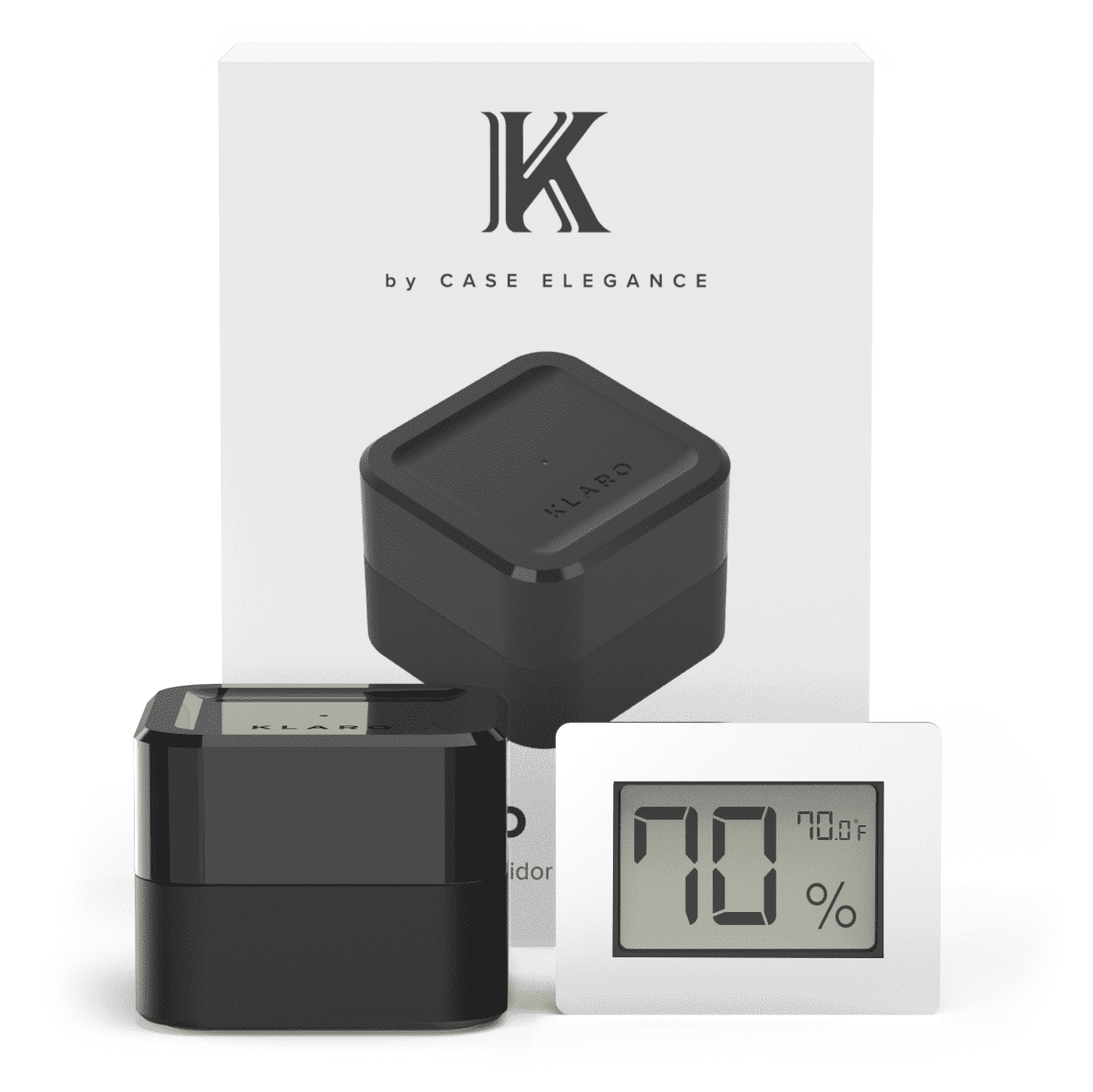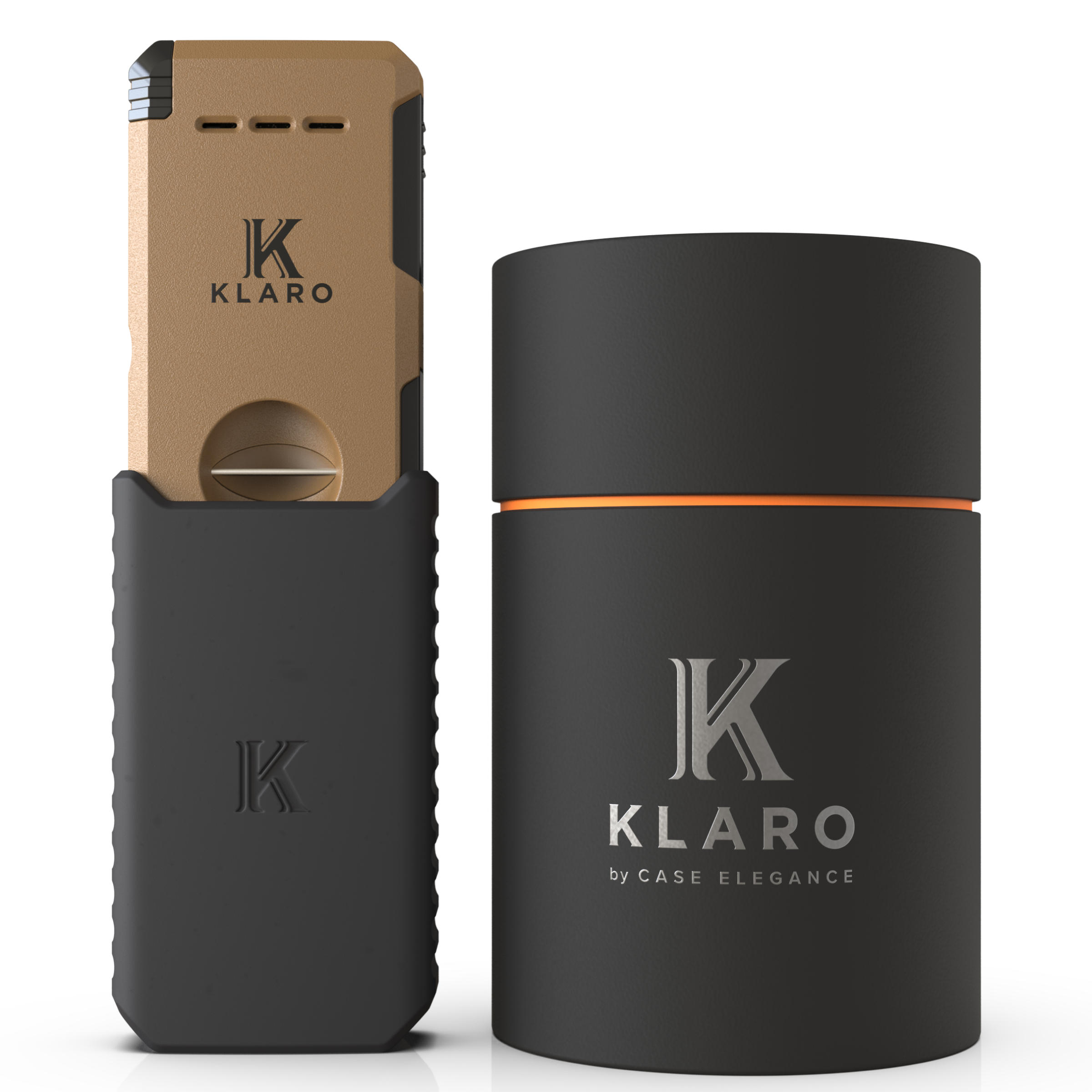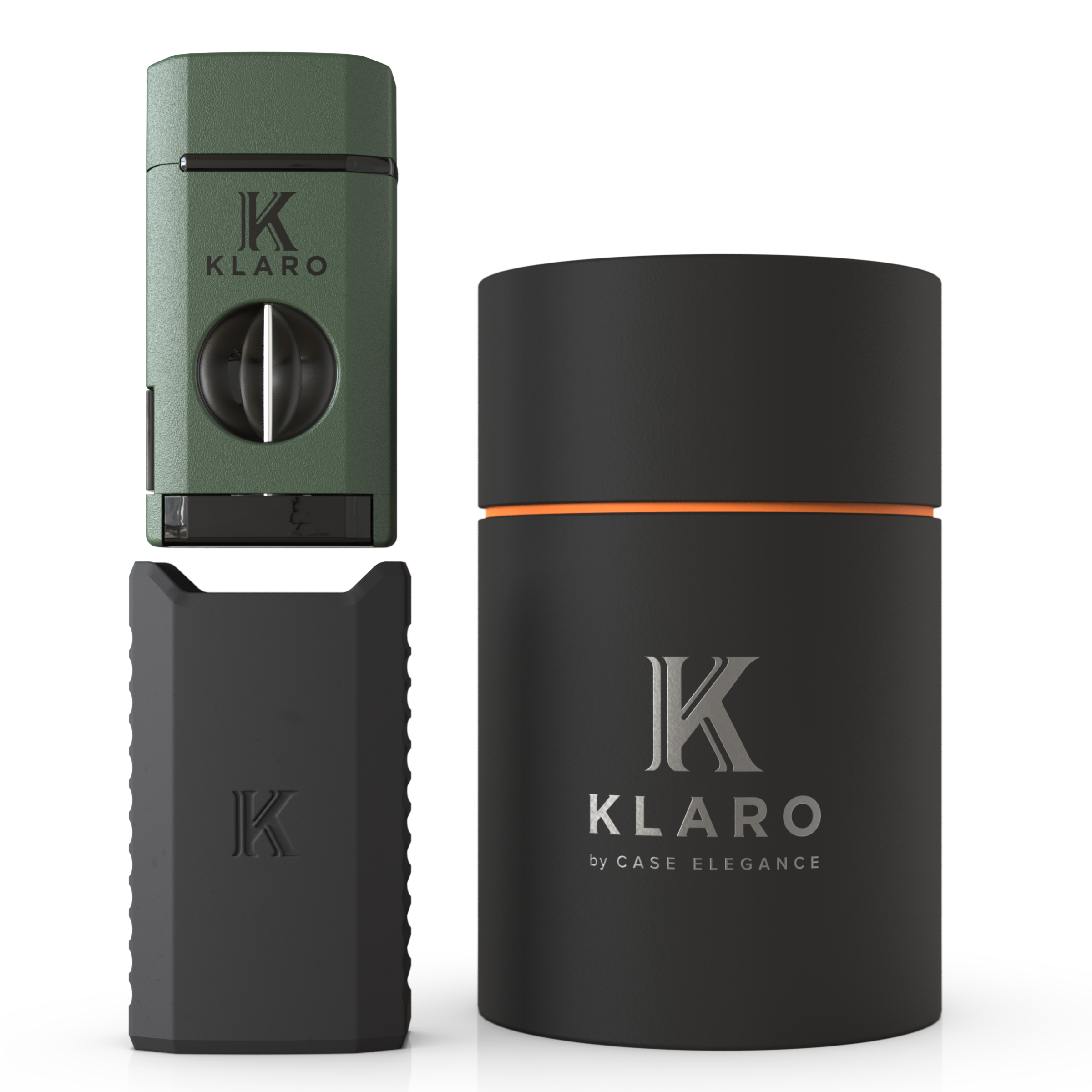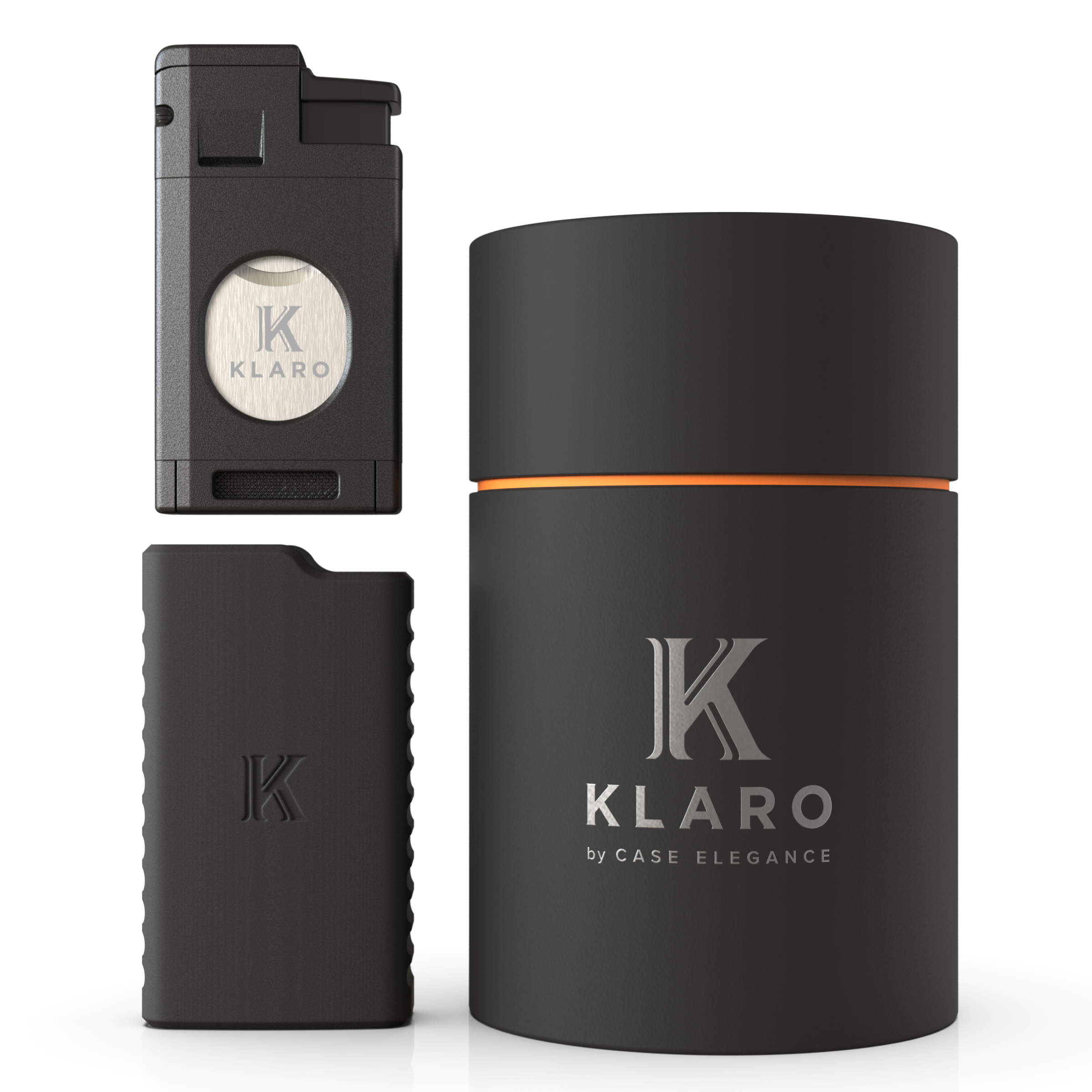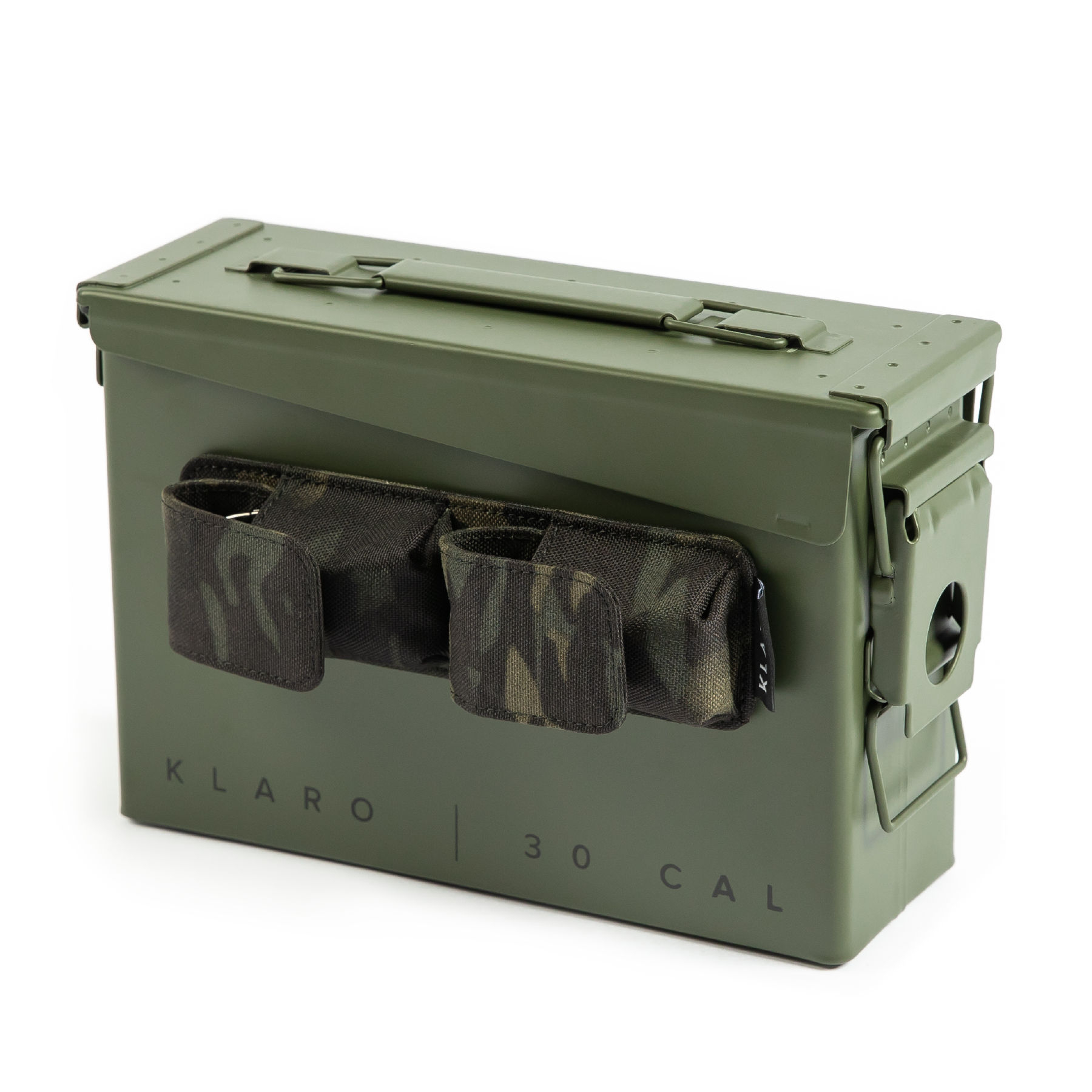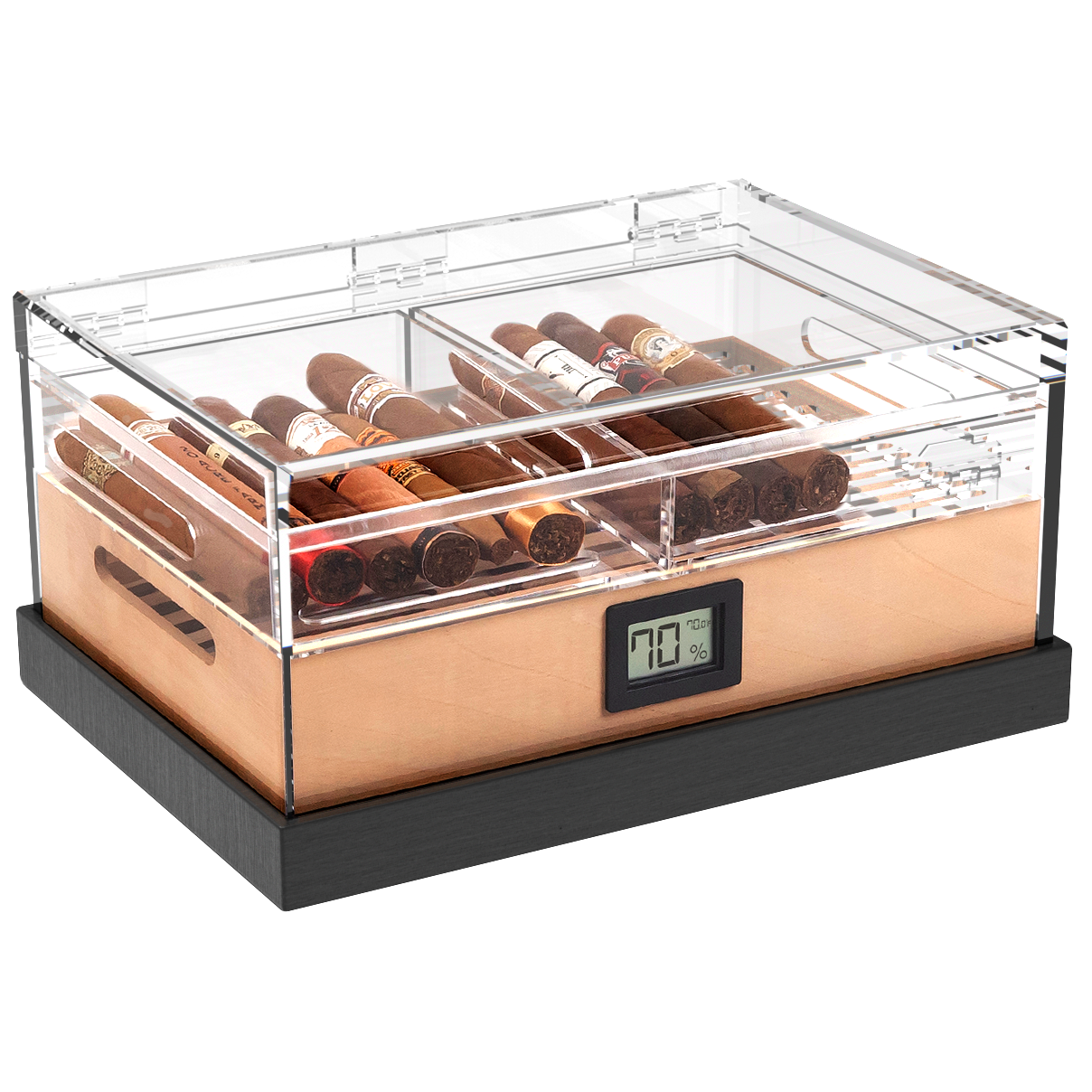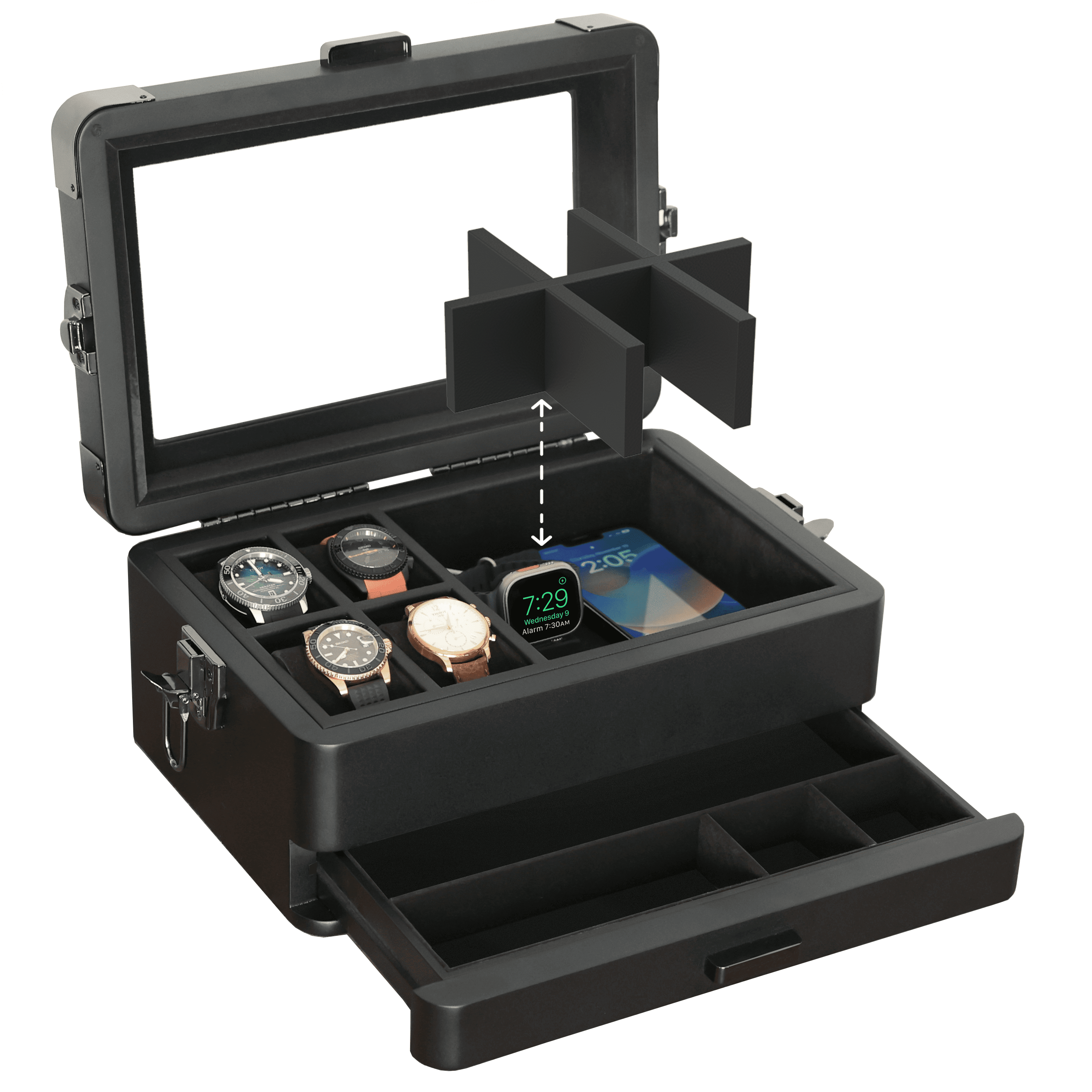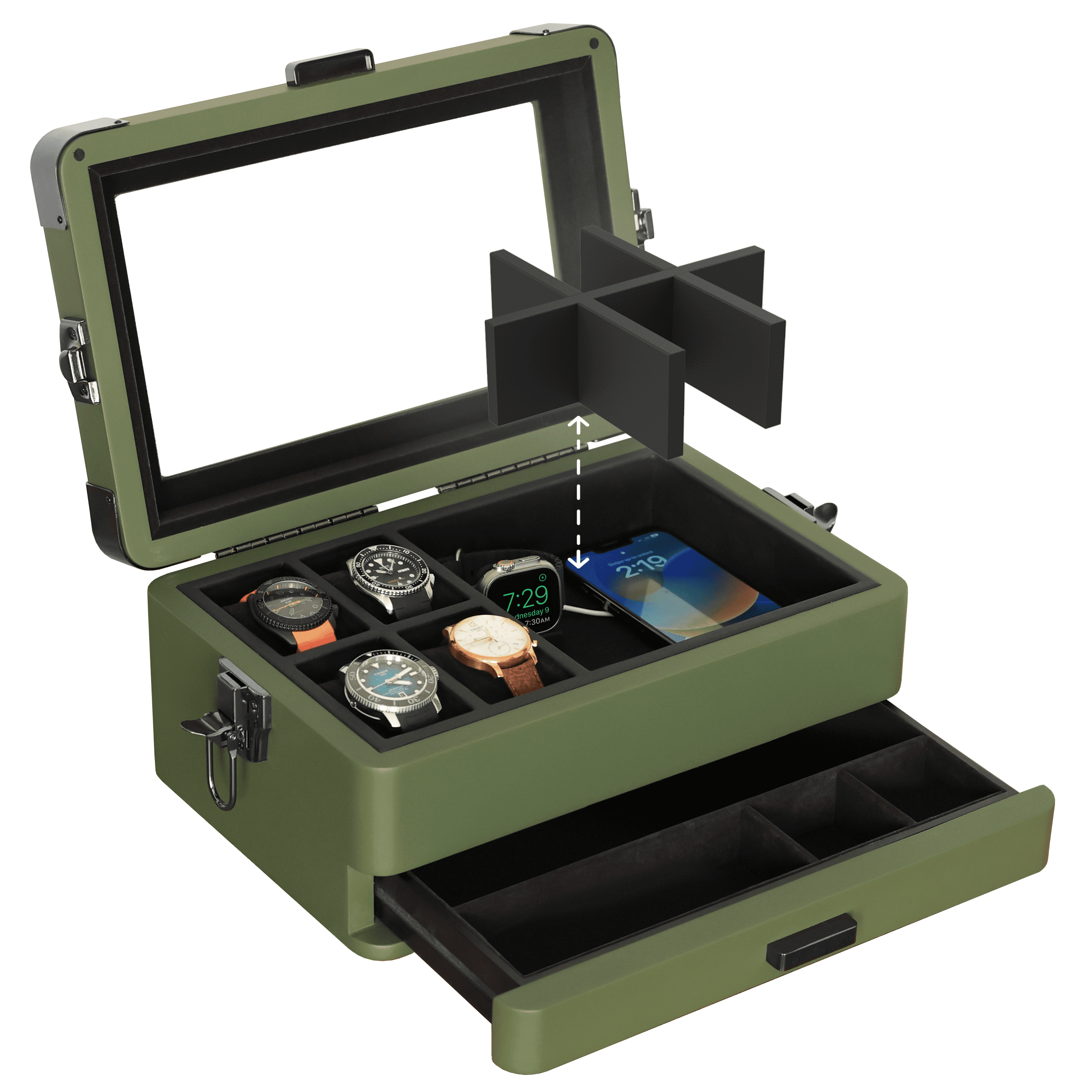While a humidor box is the ideal choice for storing cigars, many beginners or occasional smokers may wonder if a regular cigar box can serve the same purpose: can a regular cigar box have similar functionality as a humidor? And, if not, what are alternative options for cigar storage?
Here we explore what it might look like to convert a cigar box into a humidor, and the inherent differences that you’ll still face between a humidor and a DIY cigar box.
Can cigar boxes be used as a humidor?

A regular cigar box can be used as a makeshift humidor to some extent, especially if you only have a small number of cigars to store. However, it is essential to understand the limitations and potential risks associated with using a regular cigar box as a humidor.
First off, regular cigar boxes are not designed with the same level of precision as dedicated humidors. They lack proper insulation and airtight seals, which are crucial for maintaining optimal humidity levels. This means that a regular cigar box may not be able to provide a stable and consistent environment for your cigars.
Secondly, most regular cigar boxes do not come with a built-in hygrometer, which is essential for monitoring humidity levels accurately. Without a hygrometer, you cannot gauge the moisture content inside the box accurately, potentially leading to fluctuations that can affect the quality of your cigars. Additionally, regular cigar boxes are typically made of porous wood that may absorb and release moisture unevenly, further compromising humidity control.
What can I use if I don't have a cigar humidor?
If you don't have a cigar humidor, several alternatives can help you store your cigars properly. One option is to use a Tupperware or airtight plastic container.
Obviously you’ll need to ensure the container is clean, free of any strong odors, and has a tight-fitting lid. Then, place a small humidification device, such as a humidor pack or a humidifying puck, inside the container to help humidify the environment.
Another alternative is using a cooler or a wine fridge, especially if you have a large cigar collection. These appliances often offer better insulation than regular cigar boxes and provide a more controlled environment.
You will still need to add a hygrometer and a humidification system such as a humidifier or gel beads to regulate the humidity effectively. You might also add Spanish cedar strips to better regulate the humidity inside.
How do you make a cigar box a humidor?
Converting a regular cigar box into a functional humidor requires a few simple steps. Start by selecting a cigar box that is made of Spanish cedar, a wood known for its moisture-absorbing properties. If the box is not lined with cedar, you can purchase Spanish cedar sheets or cigar box lining kits online and affix them to the interior using adhesive.
Next, install a hygrometer to monitor the humidity levels. You can choose a traditional analog hygrometer or a digital one, depending on your preference and budget. Place the hygrometer in a visible spot inside the box, ensuring it does not obstruct the cigars.
To maintain humidity, include a humidification device such as a humidifier, humidification beads, or Boveda packs. These will help regulate the moisture inside the box and keep the cigars in optimal condition. Remember to periodically check and recharge the humidification device as needed.
What's the difference between a humidor and a cigar box?
The primary difference between a humidor and a regular cigar box lies in their design and functionality. A cigar box’s design is primarily for shipment and distribution. A humidor preserves cigars long-term. The question is: how much overlap really exists?
A humidor is purpose-built to store cigars, offering precise control over humidity levels and sometimes temperature. It typically features an airtight seal, insulation, a humidifier, and a built-in hygrometer. The interior is often lined with Spanish cedar, which not only absorbs excess moisture but releases that moisture when the environment becomes too dry. It also imparts a nice aroma to the cigars.
Regular cigar boxes, often used for packaging and transportation, lack the specialized features of a humidor. It may not have proper insulation, an airtight seal, and it won’t have a built-in hygrometer. Additionally, regular cigar boxes are usually made of wood varieties that do not possess the same moisture-absorbing properties as Spanish cedar.
While using a regular cigar box as a humidor is possible in a pinch, it is not the optimal solution for long-term cigar storage. Investing in a dedicated humidor box designed specifically for storing cigars will provide better control over humidity and temperature, ultimately preserving the quality and flavor of your cigars.
However, if you don't have a humidor, you can explore alternative options like airtight plastic containers, coolers, or wine fridges to store your cigars effectively.
For example, an airtight tupperdore with a humidor pack would be ideal for short-term uses, like shipping cigars. (Just remember to pack them with newspaper or packaging material as well). If you go the DIY humidor route, remember to monitor humidity levels and choose the right humidification system to ensure your cigars remain in optimal condition.
Parting Puffs

When you own a high-quality humidor, you begin to understand the nuances of cigar storage, and how the environment can affect the smoking experience of premium cigars. You will also better understand the difference between a proper humidor and a DIY humidor box.
To learn more, be sure to check out our comprehensive guide to humidors, where we cover humidor types, functionality, maintenance, and more.








